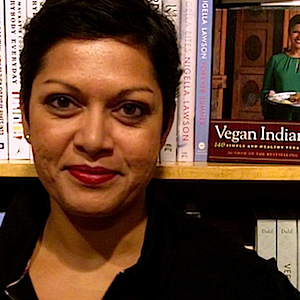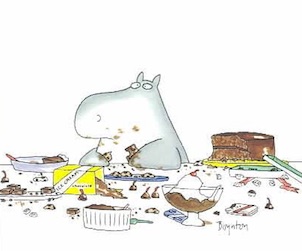Ultra-Processed People: Why Do We All Eat Stuff That Isn’t Food … and Why Can’t We Stop? by Chris van Tulleken (Penguin)
I’ve always had a real soft spot for Chris van Tulleken; at one point, I even considered bidding in a charity auction for a Zoom chat with him.
All this standom aside, he is an infectious diseases specialist at the Hospital for Tropical Diseases in London. He completed his training at Oxford and holds a PhD in molecular virology from University College London, where he serves as an Associate Professor. His research examines the impact of corporations on human health, particularly concerning child nutrition, and he collaborates with UNICEF and the World Health Organization in this field. He’s a pretty smart dude, and he’s funny with it.
I first became aware of his work through the bloody excellent BBC children’s show he presents with his twin brother, Jonathan, called Operation Ouch. It’s really worth a watch, even if you don’t have kids, and has always been one of our favourites to watch with our son. Ever since watching him in that television show, I’ve been following his work quite closely, and so I was delighted to pick up this paperback of his at the railway station on my last trip to Scotland.
Before I get all preachy on you about the clear and present danger of UPFs (ultra-processed foods) in our food system, I feel it’s important to state that I realise just how fortunate I have been to have lived a life relatively free of them, fully understanding that there are so many people that have no other choice but to consume them as they simply cannot afford to choose healthier options.
I’m really not expecting you to finish this book and go through your fridge and cupboards, chucking out anything with even a whiff of UPF to it (as I did in a veritable GFR frenzy). But when you look at that store-bought salad dressing and note the inclusion of Xanthan gum, or perhaps the myriad ingredients in 99% of all breakfast cereals, just understand that although that product may not kill you there and then, the manufacturer certainly does not have your best interests at heart.

As I read through this utterly compelling book, I found it difficult to handle the level of disgust I felt with the food industry and the wholly insidious manner with which they utilise UPFs.
UPFs have been on my radar for a good few years now, but reading this meticulously well-researched and referenced exposé of the sinisterly insidious nature of them absolutely turned my stomach. If you finish Ultra-Processed People without feeling utter, incandescent rage with the multinationals that have slowly and deliberately infiltrated global food systems with their innumerable repulsive poisons, then I’m honestly not sure that we can be friends.
“There are inherent dangers in consuming complex mixtures of novel molecules as a source of calories. Substances we have never encountered before may have unpredictable effects on our physiology”
Throughout some 340 pages, van Tulleken proposes that UPFs are more addictive and harmful to the human body than tobacco, stating that where we are today is not dissimilar to where we were with smoking in the 1950s. He talks with scientists and professionals from all manner of fields about every aspect of UPFs, from their foul inception in Nazi Germany (see: coal butter, the world’s very first totally synthetic foodstuff) to Nestlé’s floating supermarket barges destroying the traditional diets of the world’s most vulnerable peoples (see: that particular multinational purposely getting remote Amazonian communities hooked on UPFs as a corporate marketing strategy). The problem appears to be that once you have Kit-Kats and ice cream, you just cannot go back, and therein lies one of the biggest problems with UPFs: they are meticulously lab-designed to enslave the consumer and engineered to drive excessive consumption. And we wonder why we are facing an ever-growing obesity epidemic?
It is important that we do not confuse UPFs with processed foods. When one cooks a piece of meat, one is processing it, boiling an egg, the same. Sausages from a quality butcher are processed. I could go on. The definition of what exactly constitutes a UPF can be nebulous, and van Tulleken explores this in some detail. I’ll clumsily paraphrase Michael Pollan here and tell you that if there’s an ingredient in there that NOBODY’s grandmother ANYWHERE in the world would be familiar with, then it’s most probably a UPF. Case in point: my Scottish gran would think a raw oyster to be wholly alien, whereas it is definitely nowhere close to the UPF designation. Also, if you can buy it at a gas station, you can be damn sure it’s a UPF.
This incendiary book is a must-read for anyone remotely interested in or concerned about how our global food systems have become polluted with this toxic muck.
![]()
(Five out of a possible five apples)







